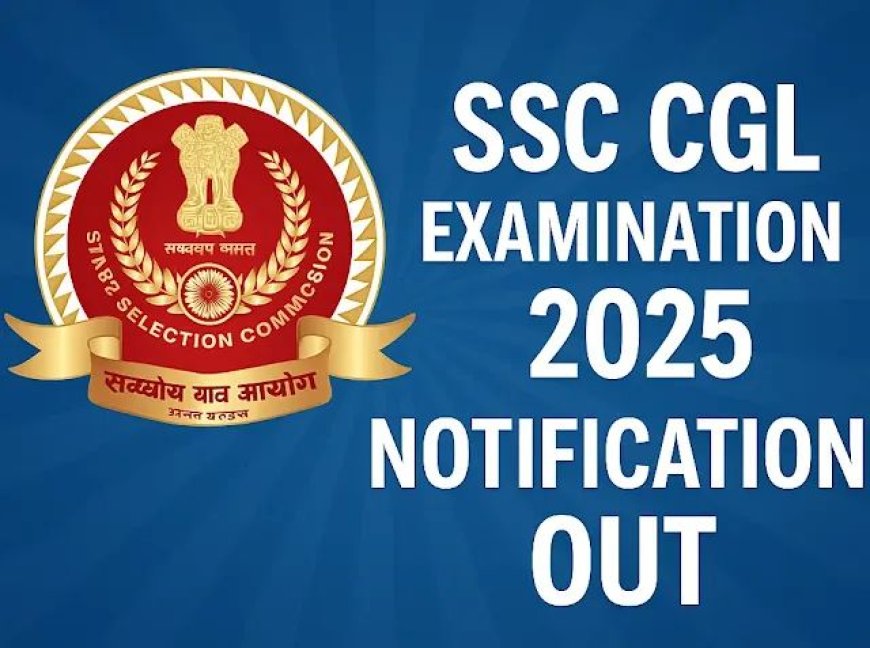SSC CGL 2025 to See Major Reforms: Single-Shift Exam, Nearby Centres, and Stricter Supervision
SSC CGL 2025 brings single-shift exams, centers within 100 km, and stricter supervision to ensure fairness, transparency, and candidate ease.

Introduction
The Staff Selection Commission (SSC) is set to overhaul its Combined Graduate Level (CGL) examination in September 2025. In response to mounting candidate concerns—ranging from technical glitches to distant centers—the Commission has rolled out sweeping reforms designed to make the exam more equitable, accessible, and secure.
Historical Context: Why Reform Was Necessary
Earlier SSC exam cycles were plagued with operational issues: system freezes, malfunctioning computers, slow Aadhaar authentication, and centers hundreds of kilometers from candidates’ homes. Some exams were even postponed due to protests over mismanagement. Recognizing the urgent need for transparency, SSC Chairman S. Gopalakrishnan announced a suite of reforms aimed at rebuilding trust and improving convenience.
What Are the New Reforms?
Single-Shift Exam
The CGL Tier 1 exam will now be administered in one single shift nationwide, replacing the previous multi-shift model. This change ensures uniformity and fairness by eliminating discrepancies caused by variations in question difficulty.
Centres Within 100 km
To reduce travel hardship, SSC mandates that exam centers be within 100 kilometers of a candidate’s registered address. Currently, around 80% of candidates receive such centrally located centers; SSC aims to boost that to over 90% for CGL 2025.
Enhanced Supervision and Vendor Restructuring
SSC will now distribute key responsibilities across four specialized agencies—replacing the previous single-vendor model. Each agency will handle:
-
Exam center logistics
-
Security
-
Online applications
-
Question paper preparation
Notably, SSC will directly oversee content creation to safeguard quality.
Fair Scoring With Shift-wise Normalisation
Even though CGL Tier 1 is now single-shift, SSC will maintain a shift-wise normalization process for other exams or tiers to ensure fairness if difficulty levels vary.
Aadhaar-Based Verification
To prevent impersonation, Aadhaar authentication is now mandatory. Early glitches have been rectified, and the system has been streamlined for faster verification.
Rollout Timeline & Scope
-
Implementation Year: The reforms are effective from September 2025, as confirmed by SSC.
-
Geographic Scope: Reforms apply nationwide, benefiting candidates from all states including Andhra Pradesh, Telangana, and more.
Significance & Rationale
-
Increased fairness: Single-shift exam levels the competitive playing field.
-
Reduced logistics burden: Nearby centers lighten candidate travel and stress.
-
Operational transparency: Splitting vendor duties discourages administrative abuse.
-
Enhanced credibility: Better verification and supervision restore exam trust.
Pros & Cons
| Advantages | Drawbacks / Challenges |
|---|---|
| Unified testing experience evolves fairness | Complex coordination among multiple vendors |
| Less travel stress for candidates | Centralized control may raise oversight costs |
| Better administrative control | Rural candidates might still face center shortages |
| Stronger exam integrity | Implementation risks and transition issues |
Final Thoughts & Conclusion
SSC’s 2025 revolution for the CGL exam marks a pivotal shift toward fairness, accessibility, and accountability. Conducted in a single shift with local centers and rigorous oversight, the reforms aim to undo years of candidate frustration. However, successful implementation will depend on seamless execution, equitable center distribution, and robust infrastructure.
If scaled properly, these reforms could become a benchmark in government recruitment—balancing efficiency with candidate-centric logistics.

 Ellofacts
Ellofacts 





